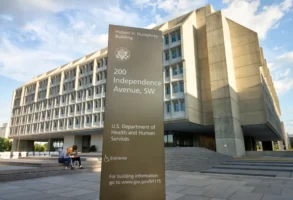Published April 14, 2015
The Senate is now considering the Medicare-physician-payment legislation that the House passed shortly before Congress’s recent two-week break. In all likelihood, a large, bipartisan group of senators will support the bill and thus ensure it becomes law (the Obama administration has already indicated that the president will sign it). That’s very unfortunate because it’s misguided legislation that will do far more harm than good.
Some House and Senate Republicans are enthused about the bill because it would probably break (at least for some period of time) the cycle of annual “doc fixes” that have been implemented for more than a decade to prevent large, irrational cuts to physician fees under Medicare. Spending money on higher physician fees has strong appeal, even for supposed fiscal conservatives. They are also pleased that the bill includes two modest reforms in Medicare’s structure — small increases in premiums for upper-income beneficiaries, and a prospective prohibition on Medigap plan coverage of the part B deductible.
These reforms are worthwhile, but they are really minor in comparison with the far more consequential provisions in the legislation related to the payment of physicians under Medicare. Unfortunately, many in the GOP seem completely unaware of how these provisions will work.
The heart of the bill is a new, two-tiered indexing system for physician fees. Physicians who agree to participate in Medicare Accountable Care Organizations (ACOs) — or in similar structures established by the Medicare bureaucracy — will receive a permanent 0.75 percent increase in their fees each year. Physicians that don’t join an ACO will be placed into a new Merit-Based Incentive Payment System, or MIPS. Under MIPS, the Medicare bureaucracy will assess the “quality” of a physician’s services to patients and reward or penalize them accordingly. On average, physicians in MIPS will receive a payment increase of 0.25 percent every year — far below the annual payment increase for physicians in ACOs.
The actuaries who assess Medicare finances for the administration have looked at these provisions and come to the perfectly rational conclusion that physicians will have little choice but to join an ACO to get an extra 0.5-percentage-point bump in their payments every year. By 2019, the actuaries assume that 60 percent of all physicians taking care of Medicare beneficiaries will be part of an ACO, up from 25 percent today. By 2038, they assume that 100 percent of physicians participating in Medicare will be a part of an ACO or a similar structure invented by the Medicare bureaucracy.
And so what are these ACOs that will feature so prominently in Medicare’s future? The basic idea is to provide incentives to hospitals and physicians to form new organizations that will better coordinate care for Medicare beneficiaries, sort of like an HMO except without the insurance component. The Medicare bureaucracy sets the rules that ACOs must live by, and if an ACO is able to reduce costs through better coordination of care, it gets to share in the savings with the Medicare program.
A crucial feature of the ACO design is the concept of “beneficiary assignment.” Medicare’s enrollees are never explicitly asked if they would like to obtain their care through an ACO. Instead, the Medicare bureaucracy assigns beneficiaries to ACOs based on their use of physician services. If a beneficiary’s presumed “primary” physician is part of an ACO, then the beneficiary is assumed to be a part of it, too. Under current rules, nothing prevents Medicare beneficiaries from seeing physicians outside of an ACO, but the expectation is that ACO-affiliated physicians will steer their patients to other ACO-affiliated physicians, even if the beneficiary is completely unaware of the existence of the ACO. In effect, Medicare beneficiaries are being shoved into managed care–like structures without their explicit consent.
The new physician-payment system will supercharge the ACO concept by making it impossible for physicians to survive outside of an ACO. As physicians are forced to sign up with ACOs, their Medicare patients will automatically come with them. In about 20 years, the actuaries assume, there will be no Medicare program outside of ACOs and Medicare Advantage (MA) plans (the private-insurance option under Medicare).
Of course, there is nothing inherently wrong with provider-driven managed-care options that compete with MA plans. If hospitals and doctors are able to form cost-effective networks of care coordination, they should be free to offer their services to Medicare enrollees and compete with MA plans based on price and quality. Let the beneficiaries decide where they will get their care.
But that’s not how the ACO program works. Like so much else in Obamacare, it is based on coercion, not choice, and the new physician-payment system dramatically increases the coercion by forcing physicians into ACOs, too. Further, the Medicare bureaucracy has already placed immense regulatory burdens on ACOs, and these will only increase as the program is broadened to more enrollees.
Many Republicans in Congress are understandably impatient with the perennial “doc fix” battles. They just want the issue to go away — and they are also eager to claim credit with their physicians for finally “fixing” the problem.
But this supposed permanent fix is anything but benign. It forces physicians into a new structure — ACOs — that gives the Medicare bureaucracy immense regulatory power over how doctors and hospitals organize themselves and take care of patients. And it forces Medicare beneficiaries to get their care through these organizations regardless of their personal preferences. Once established, ACOs will provide a direct route for the federal government to exert full control over the practice of medicine.
It would be far better for the future of American health care if Congress scrapped this misguided plan and opted instead to pass another short-term fix, perhaps for two years or so. That would ensure that a newly elected president would have the opportunity to propose a rational approach to paying physicians that doesn’t push us even further down the road of government-dominated health care.
— James C. Capretta is a senior fellow at the Ethics and Public Policy Center and a visiting fellow at the American Enterprise Institute.








